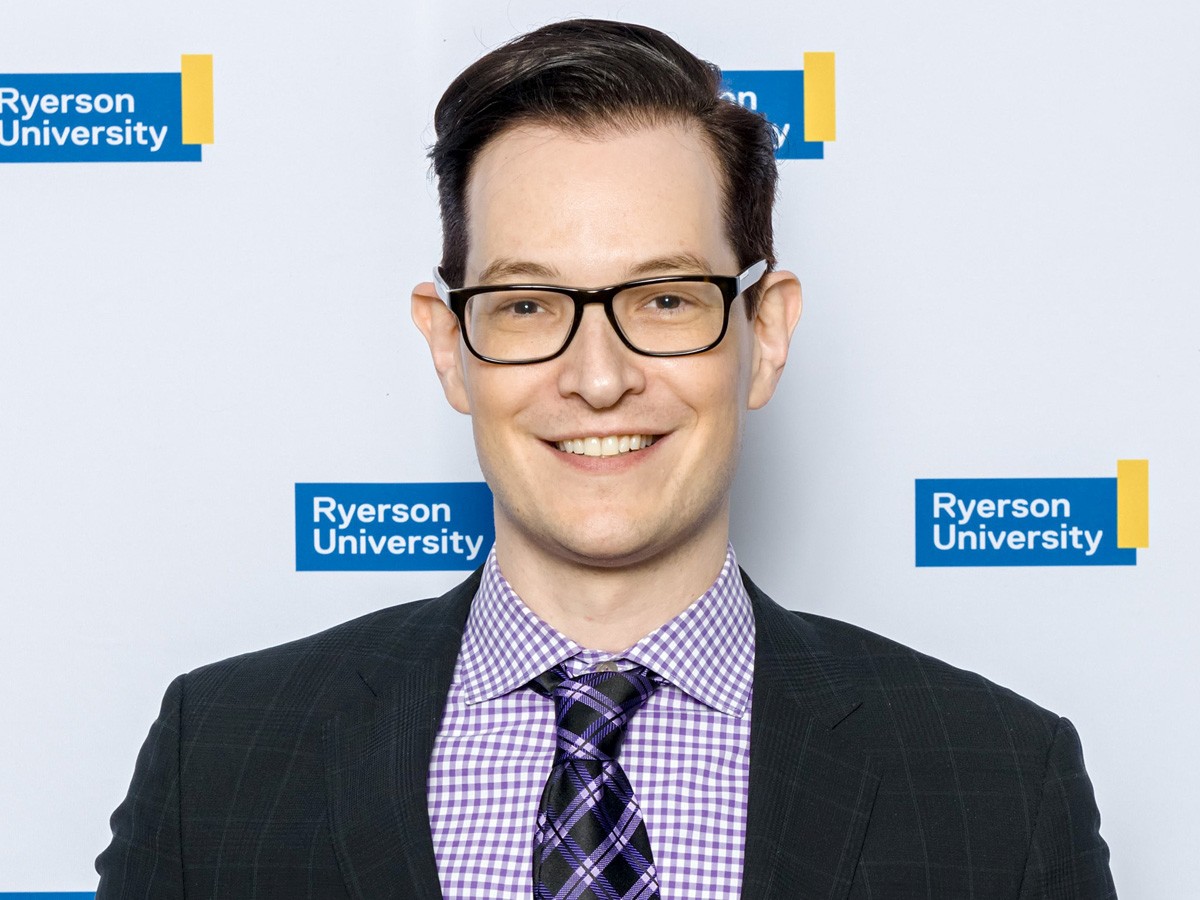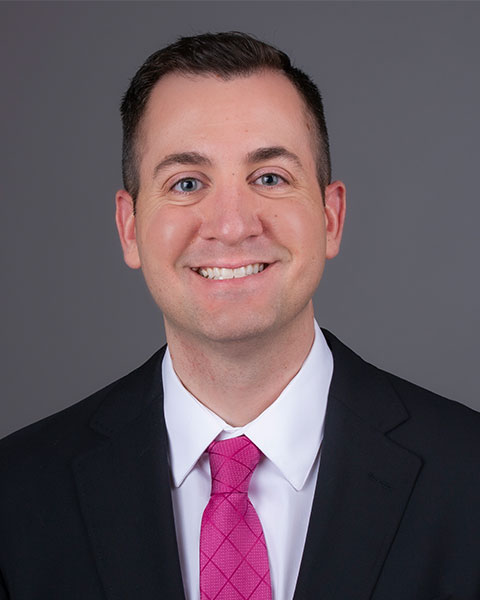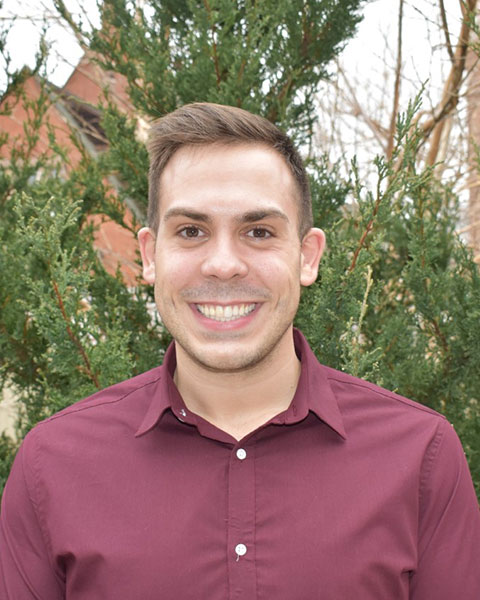Category: LGBTQ+
Symposium 81 - Psychological Distress Among Bisexual Individuals: The Effects of Discrimination in a Marginalized and Understudied Population
Level of Familiarity: Basic
Recommended Readings: Skakoon-Sparling, S., Berlin, G., Lachowsky, N. J., Moore, D. M., Lambert, G., Cox, J., Grace, D., Apelian, H., Sang, J. M., & Hart, T. A. (2022). Social support and HIV prevention behaviors among urban HIV-negative gay, bisexual, and other men who have sex with men.Health Psychology, 41(1), 65–75. https://doi-org.ezproxy.lib.torontomu.ca/10.1037/hea0001131, Feinstein, B. A., & Dyar, C. (2017). Bisexuality, minority stress, and health. Current sexual health reports, 9(1), 42–49. https://doi.org/10.1007/s11930-017-0096-3, Feinstein, B. A., Dyar, C., & Pachankis, J. E. (2019). A Multilevel Approach for Reducing Mental Health and Substance Use Disparities Affecting Bisexual Individuals. Cognitive and behavioral practice, 26(2), 243–253. https://doi.org/10.1016/j.cbpra.2017.10.003, Ross, L. E., Salway, T., Tarasoff, L. A., MacKay, J. M., Hawkins, B. W., & Fehr, C. P. (2018). Prevalence of Depression and Anxiety Among Bisexual People Compared to Gay, Lesbian, and Heterosexual Individuals:A Systematic Review and Meta-Analysis. Journal of sex research, 55(4-5), 435–456. https://doi.org/10.1080/00224499.2017.1387755, Eady, A., Dobinson, C., & Ross, L. E. (2011). Bisexual people's experiences with mental health services: a qualitative investigation. Community mental health journal, 47(4), 378–389. https://doi.org/10.1007/s10597-010-9329-x
-

Trevor Hart, Ph.D.
Professor and Director, HIV Prevention Lab
Toronto Metropolitan University
Toronto, Ontario, Canada -

Brian Feinstein, Ph.D. (he/him/his)
Associate Professor
Rosalind Franklin University of Medicine and Science
N. Chicago, Illinois -

Trevor Hart, Ph.D.
Professor and Director, HIV Prevention Lab
Toronto Metropolitan University
Toronto, Ontario, Canada -

Benjamin Katz, M.S. (they/them/theirs)
Graduate Student
University of Wisconsin-Milwaukee
Shorewood, Wisconsin -
IB
Isabel Benjamin, B.A. (she/her/hers)
PhD student
Rosalind Franklin University of Medicine and Science
North Chicago, Illinois -
AB
Andreas Bezahler, B.S. (he/him/his)
Graduate Student
Fordham University
New York, New York
Chair(s)
Discussant(s)
Presenter(s)
Most research on sexual and gender minority individuals fails to differentiate between sexual identities, either examining all sexual minority people of one sexual identity as if they were one monolithic category. However, a growing body of literature suggests that bisexual individuals may be at higher risk for a variety of psychological disorders than monosexual (e.g., gay/lesbian) individuals, including substance use disorders (e.g., Meyer, Dietrich, & Schwartz, 2008), and mood and anxiety disorders (Ross et al., 2019). Minority stress theory (e.g., Herek, 1995) would posit that bisexual individuals’ greater burden of psychological distress is likely to be attributable to monosexist discrimination and internalization of negative attitudes towards bisexual people (Salway et al., 2019). The present symposium addresses the gaps in our knowledge of bisexual individuals across two countries and across multiple age groups.
Dr. Trevor Hart and his colleagues, in a 3-city sample of 1827 cisgender men, found that bisexual men reported greater identity concealment and internalized homonegativity, were less open about their sexuality, and reported less perceived social support and lower community connectedness. Their moderation analyses suggest that bisexual men may be particularly sensitive to the impact of experiences of sexuality-based discrimination in terms of their experiences of proximal minority stress.
Benjamin Katz and colleagues examined how childhood sexual abuse history may lead to distress via greater emotional dysregulation among young adults ages 18-25 who were bisexual or attracted to more than one gender (bisexual+ individuals). Their study found that outness may not confer mental health benefits among CSA survivors from bisexual+ communities. Isabel Benjamin and her team explored discrimination and its effects among bisexual+ male youth 14-17 years of age. Bisexual+ male youth experienced multiple forms of discrimination, and that discrimination led to internalized biphobia, feeling like a burden to others, and identity concealment.
In a clinical setting, Bezahler et al. explored differences in OCD severity, emotional regulation, and distress tolerance between bisexual+ adults and gay/lesbian adults in intensive/residential treatment for OCD. Bisexual+ individuals with OCD enter treatment with more severe OCD and worse ER and DT compared to gay/lesbian people, but they leave treatment with similar levels of functioning. These findings suggest that OCD treatment is efficacious for bisexual+ and gay/lesbian individuals.
Dr. Brian Feinstein, an internationally recognized expert the psychology of bisexual individuals, will discuss how behavioural therapists can address both anti-bisexual discrimination and biphobic stressors.
Learning Objectives:
- Present an overview of bisexual men’s mental health disparities and potential contributing factors.
- Discuss evidence that indicates bisexual men may be particularly sensitive to the impact of experiences of sexuality-based discrimination.
- Describe the impact of childhood sexual abuse history on emotional dysregulation among bisexual+ young adults ages 18-25.
- Describe the impact of discrimination and its effects among bisexual+ male youth 14-17 years of age.
- Summarize differences in OCD severity and treatment outcome between bisexual+ adults and gay/lesbian adults with OCD.

